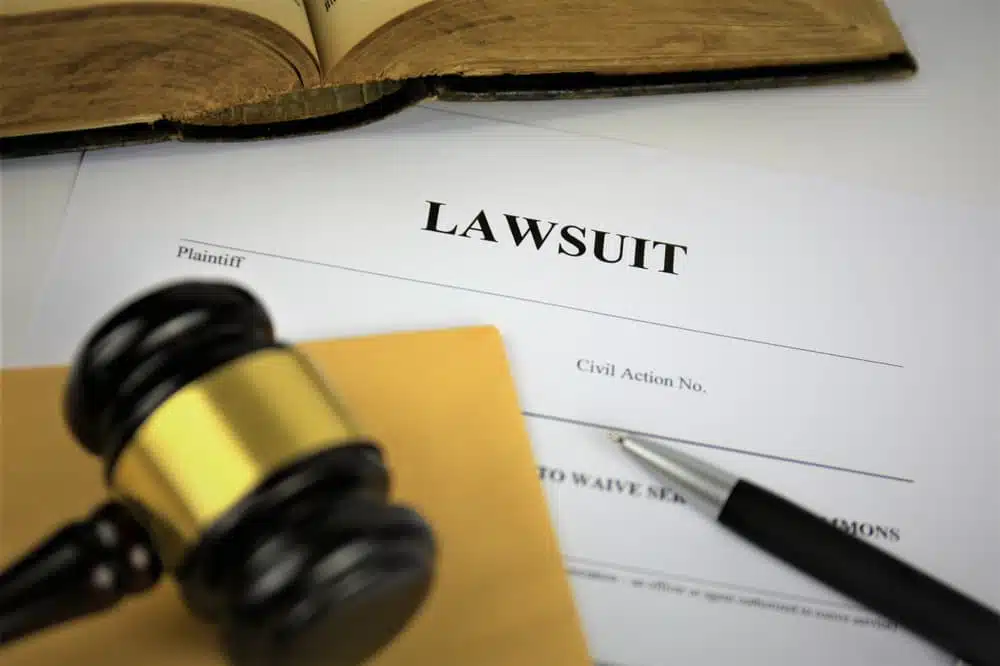
If you’ve been injured in a motorcycle accident, you’re probably feeling overwhelmed by the physical pain, emotional strain, and financial burdens that follow. Pursuing a motorcycle accident lawsuit is often a necessary step to achieving justice and receiving the compensation you deserve. Yet, one of the most common questions accident victims ask is, “How long will this take?”
While every case is different, understanding the general timeline of an accident lawsuit can help set your expectations and give you some clarity during this uncertain time.
Reach out to an experienced motorcycle accident lawyer near your today for a free case evaluation.
A Compassionate Understanding of the Challenges You Face
Motorcycle accidents can have life-altering consequences. The injuries sustained in such incidents are often severe, ranging from broken bones to traumatic brain injuries, spinal cord damage, or worse. The physical pain is compounded by the emotional toll of recovery and the financial strain of mounting medical bills, lost wages, and rehabilitation costs. You shouldn’t have to fight alone. Pursuing a lawsuit may seem daunting, but having the right legal team by your side can make the process more manageable.
The Typical Timeline of a Motorcycle Accident Lawsuit
It’s important to recognize that no lawsuit proceeds at the same speed. Factors like the severity of the injuries, the accident’s complexity, the involved parties’ cooperation, and the court’s schedule can all influence the timeline. However, most motorcycle accident cases generally follow the same process, which includes the following steps:
1. Initial Consultation and Case Evaluation
The process begins with reaching out to a personal injury attorney for an initial consultation. At this stage, you and the attorney will discuss the details of the accident, your injuries, and the circumstances surrounding the incident.
The attorney may ask questions to better understand who was at fault, the extent of your damages, and whether the case is strong enough to move forward. This is also an opportunity for you to ask questions, share your concerns, and begin building a trusting relationship with your attorney.
An experienced lawyer will handle this conversation with the compassion and empathy you need during such a difficult time. They understand you’re likely worried about your future and unsure what comes next. At the close of this stage, you can expect to feel more confident knowing that someone is on your side, ready to fight for your interests.
This phase typically takes one to two weeks, depending on how soon you seek legal counsel after the accident.
2. Investigation and Evidence Gathering
Once you decide to proceed, your attorney begins investigating the accident and gathering evidence to strengthen your case. This process is critical because the more evidence you have to support your claim, the better your chances of securing fair compensation.
Common forms of evidence collected include:
- Police reports
- Photos or videos of the accident scene, vehicles, or injuries
- Witness statements
- Medical records documenting your injuries and treatment plan
- Expert testimony (e.g., from accident reconstruction specialists or medical experts)
Your attorney may also deal with insurance companies to ensure they do not exploit your vulnerability during this challenging time. The goal in this phase is to build a case that holds up against the defense’s counterarguments and gives you the best chance of achieving maximum recovery.
The investigation phase can take anywhere from a few weeks to a few months, depending on the complexity of your case and the availability of evidence.
3. Filing the Lawsuit
After gathering sufficient evidence, if the insurance company is unwilling to offer proper compensation, your attorney will begin the formal process of filing a lawsuit on your behalf. This involves drafting and submitting a complaint to the court, outlining the facts of the case, the legal reasons the defendant is responsible, and the compensation being sought.
This process sets the wheels of the justice system in motion, but it must be done with careful attention to timing. That’s where the statute of limitations comes in—a law that sets a strict deadline for filing a lawsuit after an accident.
The statute of limitations varies by state, but in most cases, it ranges between one to four years following the date of the accident. Missing this deadline can have devastating consequences, as you could lose your legal right to pursue compensation entirely.
While this might seem like a long time, building a strong case takes significant effort and preparation. Gathering evidence, obtaining medical records, and calculating the full scope of your damages can all be time-consuming processes. The closer you get to the deadline, the greater the risk of potential complications arising.
Starting the legal process as soon as possible not only protects your rights but also ensures that critical evidence, like eyewitness accounts and accident scene details, is preserved while still fresh and accessible. However, navigating legal deadlines and requirements can be complicated. Entrusting this task to an experienced lawyer can ensure every deadline is met without the added stress falling on your shoulders.
Once the lawsuit is filed, the defendant (or their legal team) must respond, typically within 20 to 30 days. They may admit fault, deny responsibility, or file a countersuit, which can add additional layers to the case.
While this is a significant milestone in your case, it’s often just the beginning of a longer process.
4. The Discovery Phase
The discovery phase is often the most time-consuming part of a lawsuit, lasting anywhere from a few months to several years. During this stage, both sides exchange information, documents, and evidence related to the case. This allows each side to better understand the other’s arguments and prepare for what lies ahead.
Discovery can involve:
- Depositions, where witnesses or parties provide sworn testimony under oath
- Interrogatories, which are written questions exchanged between the parties
- Requests for documents (e.g., medical records, accident reports)
The discovery process allows your attorney to continue building a strong case while anticipating and countering the defense’s strategies. Although this phase can feel lengthy, it’s crucial for achieving a favorable outcome and ensuring no stone is left unturned.
5. Settlement Negotiations
The vast majority of lawsuits involving motorcycle crashes are resolved through settlements rather than going to trial. Settlement negotiations often start during or after the discovery phase once both sides have had a chance to evaluate the strength of each other’s case.
Your attorney will use the evidence gathered to fight for a settlement that fully compensates you for your medical expenses, lost wages or income, pain and suffering, and other damages. While no amount of money can undo the harm you’ve endured, a fair settlement can provide financial stability and some peace of mind as you move forward.
This phase can take anywhere from weeks to several months, depending on factors such as the willingness of the other party to negotiate and whether your attorney needs to take a firm stance to secure a fair deal.
6. Going to Trial
If the parties are unable to reach a fair settlement, your case may proceed to trial. Trials are rarer in personal injury cases, as they usually require more time, expense, and emotional energy. However, in situations where the defendant refuses to accept responsibility or offer reasonable compensation, a trial can be an essential and effective way to seek justice.
Your attorney will present evidence, call witnesses, cross-examine the defense’s witnesses, and argue your case in front of a judge or jury. The trial itself may only last a few days or weeks, but the preparation beforehand can take months.
The length of this phase depends on the court’s schedule, the complexity of the case, and how long it takes for the judge or jury to reach a decision. While trials can add additional time to a case, they can also result in significant compensation if the verdict is in your favor.
7. Appeals (If Necessary)
Even after a trial verdict, the case may not be fully resolved if the losing party decides to appeal. Appeals can add several months—or even years—to the process. However, they are not a guaranteed part of every lawsuit and only occur in specific circumstances.
If an appeal does happen, your attorney will continue to fight tirelessly on your behalf, ensuring that your side is properly argued in the appellate court.
Common Challenges in Motorcycle Accident Lawsuits
Motorcycle crash lawsuits can be complex and emotionally draining, especially when you’re already coping with the physical and financial aftermath of an accident. Several challenges often arise during the legal process, each presenting unique hurdles that can make securing fair compensation difficult without skilled legal representation.
Handling Insurance Company Tactics
Insurance companies often make the process unnecessarily difficult for accident victims. They may question the severity of your injuries, dispute the details of the accident, or offer lowball settlements that don’t cover your actual losses. These tactics are designed to protect their bottom line, not your well-being.
Without legal representation, handling these interactions can become a frustrating and stressful experience. A skilled attorney knows how to counter these strategies and advocate for the compensation you deserve.
Proving Liability in the Accident
Determining fault in a motorcycle accident isn’t always straightforward. Unfortunately, motorcyclists are sometimes unfairly stereotyped as reckless, which defendants may use to shift blame. Building a strong case requires gathering compelling evidence like accident reports, eyewitness accounts, and expert testimony.
Proving that the other party acted negligently—whether through distracted driving, speeding, or other misconduct—takes time and skill. Having a lawyer ensures that no detail is overlooked and your side of the story is clearly presented.
Addressing Disputes Over Injury Severity
Motorcycle crashes frequently result in severe injuries, such as spinal cord damage, traumatic brain injuries, or permanent disability. Unfortunately, insurance adjusters or defense attorneys may downplay the long-term effects of these injuries to minimize their financial responsibility.
Demonstrating the full extent of your damages—from medical costs to emotional trauma—requires thorough documentation and often the input of medical experts. An experienced attorney can effectively counter these disputes and fight for your fair compensation.
These hurdles underscore the importance of having a dedicated legal advocate on your side. A compassionate and skilled attorney will protect your rights and manage these challenges, allowing you to focus on your recovery while they handle the complexities of your case.
The Importance of Legal Representation
Handling a personal injury lawsuit on your own is not only overwhelming—it can also jeopardize the outcome of your case. The legal process is complex, and the stakes are high when it comes to securing the compensation you need for your recovery.
An experienced attorney does much more than handle paperwork. They advocate fiercely on your behalf, protect your rights, and ensure no detail of your case is overlooked. Most importantly, they provide the reassurance and support you need during an incredibly difficult time, allowing you to focus on healing while they handle the fight for justice.
Turning to Professionals Who Truly Care
If the driver of a motor vehicle injured you while you were riding your motorcycle, you deserve legal representation that is as compassionate as it is skilled. At The Rothenberg Law Firm Accident and Injury Lawyers, we understand the challenges you’re facing and are dedicated to helping you rebuild your life. For over 55 years, we’ve fought tirelessly to secure billions of dollars in compensation for our clients, ensuring they receive the justice and financial recovery they deserve.
From the moment you contact us, we’ll treat your case with care and dignity, working to shoulder the burdens of the legal process so you can focus on what matters most—your health and well-being. Contact us today at (800) 624-8888 or through our online form for a free, no-obligation consultation. We’re here to listen to you and offer legal support in your pursuit of justice and compensation.



